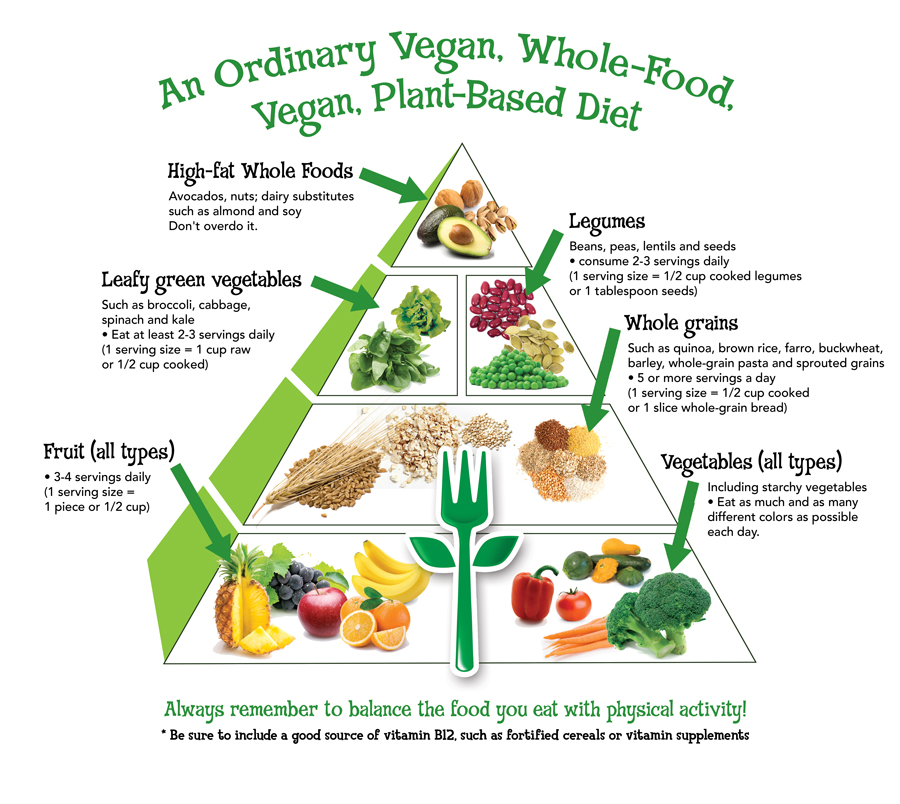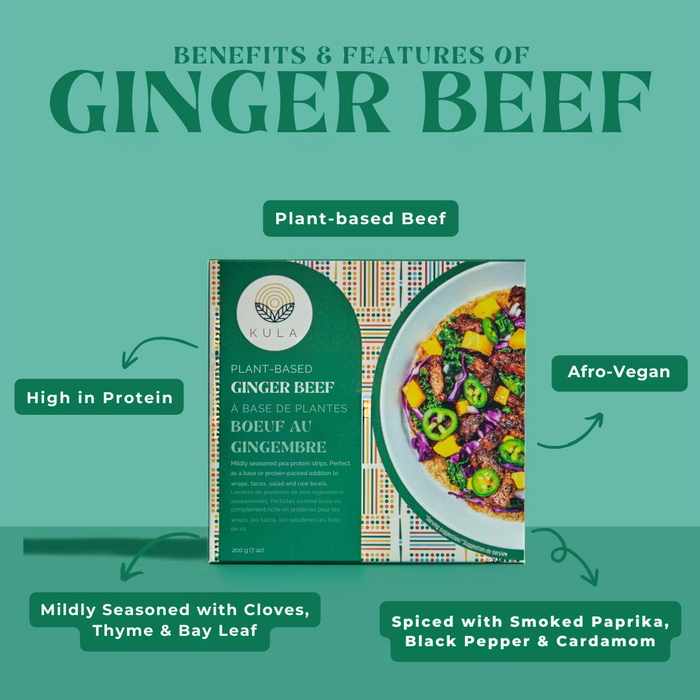What Athletes Say About Recovering on a Plant Based Beef Diet
What Athletes Say About Recovering on a Plant Based Beef Diet
Blog Article
Everything About Healthy And Balanced Food: Advantages of Checking Out Plant Based Alternatives
The conversation bordering plant-based diets has gained significant attention recently. Many people are discovering the possible health and wellness benefits, nutritional advantages, and ecological influences connected with these dietary choices. As people come to be extra conscious of their food's influence on well-being and sustainability, questions emerge concerning the functionalities of embracing such a lifestyle. What specific adjustments can one expect, and how might these choices reshape not only individual health and wellness but also the earth's future?
Comprehending Plant-Based Diets
Many individuals associate plant-based diet regimens primarily with vegetarianism or veganism, these diet regimens can include a vast variety of eating patterns that focus on entire, minimally processed plant foods. Such diets commonly include fruits, veggies, whole grains, seeds, vegetables, and nuts, while limiting or getting rid of pet products. This versatility permits individuals to customize their nutritional options according to individual preferences and dietary demands. Some might adopt a largely plant-based diet while still sometimes consuming meat or milk, typically described as a flexitarian approach. The focus continues to be on incorporating more plant foods, which can cause a varied array of meals and tastes. Comprehending these different analyses of plant-based consuming is important for valuing its access and appeal in contemporary food culture.
Wellness Conveniences of Plant-Based Foods
The health benefits of plant-based foods are significant, providing a nutrient thickness benefit that sustains overall wellness. Study indicates that these foods can improve heart health and play a necessary duty in reliable weight administration. By including more plant-based options, individuals may enhance their dietary choices and promote long-term health.
Nutrient Density Advantage
Nutrient thickness plays an essential duty in the health advantages of plant-based foods, making them a compelling selection for those seeking a balanced diet plan. Plant-based foods, such as fruits, vegetables, legumes, nuts, and whole grains, are frequently rich in vital vitamins, minerals, and antioxidants while being lower in calories. This high nutrient density permits people to take in fewer calories while still meeting their dietary demands. In addition, these foods are packed with dietary fiber, advertising digestive system wellness and helping in weight administration. By incorporating nutrient-dense plant-based options, customers can improve their overall health and wellness, support their body immune systems, and lower the danger of chronic conditions. Eventually, the nutrient density of plant-based foods underscores their relevance in a health-conscious way of life.
Heart Health Renovation

Weight Management Support
Along with advertising heart health and wellness, a plant-based diet can substantially help in weight management. This nutritional method stresses whole foods such as fruits, vegetables, vegetables, nuts, and whole grains, which are usually lower in calories and greater in fiber compared to animal-based items. The high fiber material aids enhance satiation, minimizing overall calorie intake. Plant-based diet plans are often rich in crucial nutrients while low in harmful fats, making it easier to preserve a healthy and balanced weight. Research suggests that people who embrace a plant-based way of living tend to have lower body mass indexes (BMIs) and experience even more successful weight management compared to those who take in meat-heavy diet regimens. Embracing plant-based options is a calculated option for reliable weight management.
Nutritional Value of Plant-Based Components
Plant-based components are abundant in crucial nutrients, offering a diverse range of vitamins, minerals, and antioxidants that add to general wellness. A contrast of healthy protein resources discloses that while pet products are frequently deemed remarkable, lots of plant-based alternatives supply ample healthy protein and various other valuable substances. Recognizing the dietary worth of these active ingredients can aid people make notified dietary options.
Vital Nutrients in Plants
Nutrient-rich components found in plants offer a diverse array of essential vitamins and minerals that add substantially to total wellness. These components are rich in vitamins A, C, and K, which support immune feature, vision, and blood clot, respectively. In addition, plants give vital minerals such as magnesium, calcium, and potassium, vital for heart health and wellness, muscle feature, and bone stamina. The presence of fiber in plant-based foods help digestion and promotes a healthy and balanced gut microbiome. Antioxidants, discovered abundantly in veggies and fruits, assistance fight oxidative anxiety and decrease swelling. Several plant foods are low in calories yet high in nutrients, making them a superb choice for those looking for to maintain a healthy and balanced weight while ensuring suitable nutrient intake.

Contrasting Healthy Protein Sources
Protein sources differ substantially in their dietary accounts, with plant-based components providing distinct advantages. Unlike pet healthy proteins, which typically include saturated fats and cholesterol, plant proteins often tend to be lower in these unhealthy components. Legumes, nuts, seeds, and entire grains are abundant in necessary amino acids, fiber, vitamins, and minerals. Lentils supply high protein web content together with significant iron and folate, while quinoa is a full protein, offering all 9 important amino acids. In addition, plant-based healthy proteins are frequently come with by antioxidants and phytochemicals that sustain general health. The change to plant-based protein resources not just improves nutritional intake but likewise aligns with lasting nutritional methods, reducing ecological influence and promoting lasting health and wellness advantages.
Environmental Effect of Plant-Based Eating
As understanding of environment change expands, many individuals are discovering sustainable dietary selections that can significantly decrease their environmental footprint. Plant-based consuming has become a considerable factor to reducing greenhouse gas discharges, which are primarily connected with animals production. The growing of fruits, beans, veggies, and grains commonly requires less resources, such as water and land, compared to pet farming. Additionally, plant-based diet plans can bring about decreased deforestation, as less land is needed for grazing animals or expanding pet feed. By changing towards plant-based options, consumers can support biodiversity and promote healthier ecological communities. In general, accepting plant-based consuming not just advantages personal wellness yet also represents a vital step toward environmental sustainability and conservation efforts.
Overcoming Common Misconceptions
While many individuals recognize the benefits of a plant-based diet regimen, numerous misconceptions frequently discourage them from completely embracing this lifestyle. A common idea is that plant-based diet regimens do not have adequate protein; nevertheless, various plant sources, such as legumes, nuts, and tofu, provide enough healthy protein. In addition, some presume that this diet plan is expensive, when in fact, staples like beans, rice, and seasonal veggies can be rather cost effective. An additional mistaken belief is that plant-based eating is overly limiting, whereas it really provides a varied variety of foods and tastes. Ultimately, several fret that a plant-based diet might cause shortages, yet with appropriate preparation, individuals can obtain all essential nutrients, consisting of minerals and vitamins, while delighting in a variety of delicious dishes.
Tips for Transitioning to a Plant-Based Lifestyle
Making the change to a plant-based way of life can Website be an improving web experience, though it frequently calls for some assistance to browse the initial adjustments. First, individuals are urged to start slowly, incorporating more fruits, veggies, legumes, and whole grains right into their dishes while decreasing meat and milk consumption. Meal preparation is essential; preparing a weekly menu can aid ease the change and stop final harmful choices. Checking out brand-new dishes and cooking approaches can also improve the experience and preserve excitement about plant-based eating. In addition, joining assistance teams or areas can provide motivation and share important ideas. Lastly, remaining educated concerning nourishment warranties well balanced dishes, protecting against shortages while fostering a healthy, rewarding plant-based way of life.
Delicious Plant-Based Dish Ideas
Checking out scrumptious plant-based meal concepts can motivate individuals to accept an extra nutritious diet plan. One preferred option is a hearty quinoa salad, including cherry tomatoes, cucumber, and a zesty lemon-tahini dressing. One more fave is a savory lentil stew, packed with carrots, celery, and aromatic natural herbs, perfect for a reassuring supper. For morning meal, over night oats made with almond milk, chia seeds, and topped with fresh berries provide a healthy begin to the day. In addition, a vibrant vegetable stir-fry with tofu and a range of vibrant veggies can be a fast yet satisfying dish. Ultimately, luscious avocado salute on whole-grain bread, sprinkled with flavors and seeds, uses a straightforward yet flavorful snack. These dishes display the selection and splendor of plant-based consuming.

Frequently Asked Inquiries
Can a Plant-Based Diet Plan Offer Sufficient Healthy Protein?
The question of whether a plant-based diet regimen can supply adequate healthy protein is typical. Various best site resources, including legumes, nuts, seeds, and entire grains, can meet healthy protein needs effectively, sustaining a healthy and well balanced diet plan for people.
Are Plant-Based Diets Ideal for Children?
The viability of plant-based diet plans for youngsters depends upon mindful planning. Ample nutrients need to be guaranteed, including minerals, vitamins, and healthy proteins. With proper advice, such diets can sustain healthy growth and growth in children.
Exactly how Do I Eat Out on a Plant-Based Diet?
Eating in restaurants on a plant-based diet includes looking for dining establishments with diverse food selections, requesting for modifications, and checking out vegan-friendly alternatives. Planning ahead and connecting nutritional preferences can improve the eating experience while keeping dietary choices.
What Are Typical Irritants in Plant-Based Foods?
Common allergens in plant-based foods include soy, gluten, nuts, and seeds - Plant Based Beef. Individuals complying with a plant-based diet plan needs to recognize these allergens and check out tags meticulously to avoid damaging responses and guarantee safe intake
Can Plant-Based Diets Assist With Weight Loss?
Research suggests that embracing a plant-based diet regimen might facilitate weight-loss because of its commonly reduced calorie thickness and greater fiber web content. This mix can boost satiation, aiding people handle their calorie intake efficiently. Lots of people link plant-based diet plans primarily with vegetarianism or veganism, these diet plans can encompass a wide range of consuming patterns that focus on entire, minimally processed plant foods. Nutrient density plays a vital function in the health benefits of plant-based foods, making them an engaging selection for those seeking a balanced diet. Plant-based diet regimens have actually been shown to significantly enhance heart health, as they often contain components that sustain cardiovascular feature. In enhancement to promoting heart health, a plant-based diet regimen can significantly aid in weight management. An usual belief is that plant-based diets do not have adequate healthy protein; nevertheless, various plant sources, such as beans, nuts, and tofu, offer ample healthy protein.
Report this page